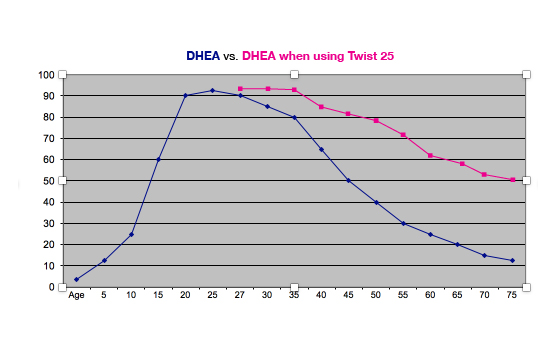Seasonal depression, also known as seasonal affective disorder (SAD) or the winter blues, tends to worsen in the colder winter months. Shorter days offer less available sunlight, and temperatures drop, exacerbating making unpleasant to go outside. This is particularly relevant when considering the science behind SAD. In this article, we discuss how DHEA, sun light, vitamin D, sleep, and exercise play a part in managing SAD symptoms.
Could some simple lifestyle choices like getting outside in nature more, getting some exercise or prioritizing sleep significantly improve your health and mood? Yes.
There are two substances that fall into the category of “Fountain of Youth”. They are Vitamin D and DHEA, short for dehydroepiandrosterone.
Both of these substances are large carbon chain molecules that are produced in the body from dietary cholesterol.
Vitamin D
Adequate levels of Vitamin D are important for bone strength, improved mood, physical performance, healthy immune function.
A deficiency of a particular kind of vitamin D, known as vitamin D3 can result in weight gain, depressed mood, fibromyalgia, chronic fatigue syndrome, joint degradation and diseases of aging like arthritis and hypertension.
Vitamin D is a steroid hormone made from cholesterol. When our skin is exposed to sunlight, cholesterol can be converted into Vitamin D3. However, during the winter months, many people do not get enough sunlight exposure, leading to potential deficiencies.
Food sources of vitamin D include egg yolk, fatty fish and beef liver. However, it is challenging to obtain adequate Vitamin D3 from food sources alone.
Vitamin D3 Supplementation is recommended, usually ranging from 2,000 IU to 5,000 IU daily. Additionally, supplementing with Vitamin K2 is advisable to prevent arterial calcification.
Regular testing of Vitamin D levels is recommended, with the goal of maintaining a level within the range of 50 – 80 ng/mL. At-home test kits are available online for convenience.
DHEA for SAD
DHEA, short for Dehydroepiandrosterone, is a precursor hormone synthesized from cholesterol. It is secreted by the adrenal glands and metabolized in the gonads and skin. A lab can cheaply and easily test your DHEA-S. DHEA sulphate is the lab test used as the measure for DHEA level.
DHEA is the most abundant foundation or base from which the body makes hormones.
Levels of DHEA peak between ages 20-25 and gradually decline thereafter, affecting bone density, muscle strength, and overall vitality. This decline can contribute to conditions like the side effects of menopause and mood-related issues, including seasonal affective disorder.

Hence, it is not unexpected to discover that many adults between the ages of 35 and 65 begin to lack drive and vitality and feel tired. Some people describe it as losing their focus and fitness. Unfortunately, many physicians prescribe antidepressant drugs without first offering more fundamental approaches like getting outside and getting some sun light, exercising, sleeping 6-8 hours, or DHEA cream.
When DHEA levels are low, the body has lower hormone metabolism. This can make you feel bloated, fatigued and stressed. Low DHEA can weaken the immune system and make you more susceptible to colds and flu as well. Medical research studies show that study participants with low DHEA levels reported lower on the Hamilton Depression rating scale. Basically, low hormone levels have consistently been associated with feeling unhappy or sad. Hormones are the protein molecules that drive us. Hormones affect how we feel, how motivated we are, energy level, cognitive function and physical performance.
Quick Facts about DHEA for Mood Boost
- Most abundant prohormone in the body.
- For men and women alike, DHEA peaks by age 25, then declines annually at a rate of 2%.
- After age 35 hormones like DHEA, androgens, estrogens gradually decrease. Cortisol gradually increases.
- Multitude of benefits backed by scientific studies
- Skin benefits reflect overall youthfulness and health.
- More active when applied to the skin than when taken orally.
- Converted to other hormones such as estrogen and testosterone.
- Not addictive or habit-forming, available without a prescription.
- No dangerous side effects.
- Building block for hormones, sebum, collagen, cartilage, and more.
“We find DHEA to be an effective treatment for midlife-onset major and minor depression.” (PJ Schmidt, M.D. and RC Daly, M.D.)
Exercise & Sleep
In addition to using Twist 25 DHEA cream, maintaining an active lifestyle and prioritizing adequate sleep are also important parts of managing seasonal affective disorder.
Regular exercise, even in the form of simple activities like walking or stretching, can have significant benefits for physical and mental health. Outdoor activity, in particular, can get your heart rate up and also provide some skin exposure to natural sunlight, which is beneficial for mood.
Ensuring sufficient sleep, typically 6-8 hours per night, is crucial for overall well-being and can help mitigate symptoms of SAD.
Bottom Line on DHEA For Depression
Seasonal affective disorder can significantly impact one’s quality of life, particularly during the colder, darker months of the year. While there are various factors at play, including sunlight exposure and hormonal balance, incorporating lifestyle changes such as DHEA cream, exercise, and adequate sleep can help turn things around.
Prioritizing some basic healthy behaviors, and using Twist 25 DHEA cream every day can stave off seasonal affective disorder to maintain health and vitality in the winter months.
References:
Wolkowitz OM, Reus VI, Roberts E, et al “Dehydroepiandrosteron (DHEA) Treatment of Depression” Department of Psychiatry, University of California, San Francisco, School of Medicine 94143-0984, U.S.A. Feb 1, 1997https://pubmed.ncbi.nlm.nih.gov/9024954/
Schmidt PJ, Daly RC, et al “Dehydroepiandrosterone monotherapy in Midlife-onset Major and Minor Depression” Behavioral Endocrinology Branch, National Institute of Mental Health, Rockville, MD 20892-1276, U.S.A. Feb 2005 https://pubmed.ncbi.nlm.nih.gov/15699292/
G. Valenti, L. Ferrucci, F. Laurentani, G. Ceresini, S. Bandinelli, M. Luci, G. Ceda, M. Maggio, and R.S. Schwartz “Dehydroepiandrosterone sulfate and cognitive function in the elderly. The InCHIANTI Study” Journal of Endocrinology Invest. Oct 2009: 32(9): 766-772 https://www.ncbi.nlm.nih.gov/pmc/articles/PMC6106776/
Stephenson K, et al “The Effects of compounded bioidentical transdermal hormone therapy on hemostatic, inflammatory, immune factors; cardiovascular biomarkers; quality of life measures;and healthoutcomes in perimenopausal and postmenopausal women.” Womens Wellness Center, Tyler, Texas, U.S.A. Feb 17, 2013 https://pubmed.ncbi.nlm.nih.gov/23627249/
Clarke JL, Skoufalos A, Medalia A, Fendrick AM. Improving health outcomes for patients with depression: a population health imperative. Report on an expert panel meeting. Population Health Management. 2016;19(S2):S-1-S-12. doi:10.1089/pop.2016.0114
Penckofer S, Kouba J, Byrn M, Ferrans CE. Vitamin D and Depression: Where is all the Sunshine? Issues in mental health nursing. 2010;31(6):385-393. doi:10.3109/01612840903437657.





